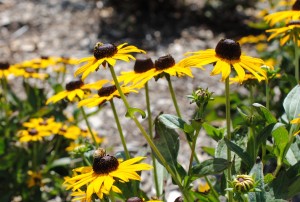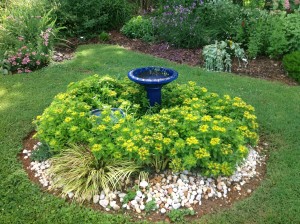National Pollinator Week 2016
go.ncsu.edu/readext?416514
en Español / em Português
El inglés es el idioma de control de esta página. En la medida en que haya algún conflicto entre la traducción al inglés y la traducción, el inglés prevalece.
Al hacer clic en el enlace de traducción se activa un servicio de traducción gratuito para convertir la página al español. Al igual que con cualquier traducción por Internet, la conversión no es sensible al contexto y puede que no traduzca el texto en su significado original. NC State Extension no garantiza la exactitud del texto traducido. Por favor, tenga en cuenta que algunas aplicaciones y/o servicios pueden no funcionar como se espera cuando se traducen.
Português
Inglês é o idioma de controle desta página. Na medida que haja algum conflito entre o texto original em Inglês e a tradução, o Inglês prevalece.
Ao clicar no link de tradução, um serviço gratuito de tradução será ativado para converter a página para o Português. Como em qualquer tradução pela internet, a conversão não é sensivel ao contexto e pode não ocorrer a tradução para o significado orginal. O serviço de Extensão da Carolina do Norte (NC State Extension) não garante a exatidão do texto traduzido. Por favor, observe que algumas funções ou serviços podem não funcionar como esperado após a tradução.
English
English is the controlling language of this page. To the extent there is any conflict between the English text and the translation, English controls.
Clicking on the translation link activates a free translation service to convert the page to Spanish. As with any Internet translation, the conversion is not context-sensitive and may not translate the text to its original meaning. NC State Extension does not guarantee the accuracy of the translated text. Please note that some applications and/or services may not function as expected when translated.
Collapse ▲This week, June 20 – 26 of 2016, is national pollinator week. Why might that be important to you? Pollination is the process of moving the pollen from the filament (male part of the flower) to the stigma (the female part of the flower that receives the pollen). With some plants like corn and pecan trees this is done by the wind, however, for many of our food crops like squash, apples, oranges, and so many others it would take forever to name them all pollination is done with the aid of insects and a few other small animals.

Honeybee on Black-eyed Susan
Honeybees are often used by farmers to ensure crops get pollinated. There are lots of other pollinators that help as well. Many of these other pollinators are native bees and wasps, beetles, flies, and butterflies to name a few. All of these pollinators have something in common with us humans. They need food in the way of nectar and pollen from flowers (that was kind of obvious), but they also need a place to shelter, water and a place to rear their young. In short they need many of the same things we need.

Small garden for pollinators
One way we can help is by providing some of these items for them in the way of pollinator gardens. A pollinator garden made for butterflies would not only need flowers that would attract the butterflies, but would also provide some host plants for the caterpillars to feed on as they grow and possibly a shallow water source. There are several native bees that are solitary in nature and prefer to make their nest (or brood chamber) in the ground. For this they would need some bare soil to dig into. A walkway of stepping stones and no mulch or weeds would be a good way to provide this for them. Other bees like to nest in wood or cavities. This publication on Nests for Native Bees has a lot of great information on how to build some nesting sites for these bees.
If you decide that building a pollinator garden is a worthwhile gardening activity remember to plant a wide variety of flowering plants that will provide flowers throughout the year. There are several sites that can help with plant selection. Here is a short list in case you are interested.
Selecting Plants for Pollinators
I hope you will find some way to celebrate pollinator week, even if it’s simply enjoying some fresh fruits that were pollinated by pollinators.




